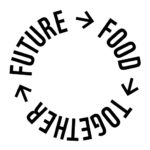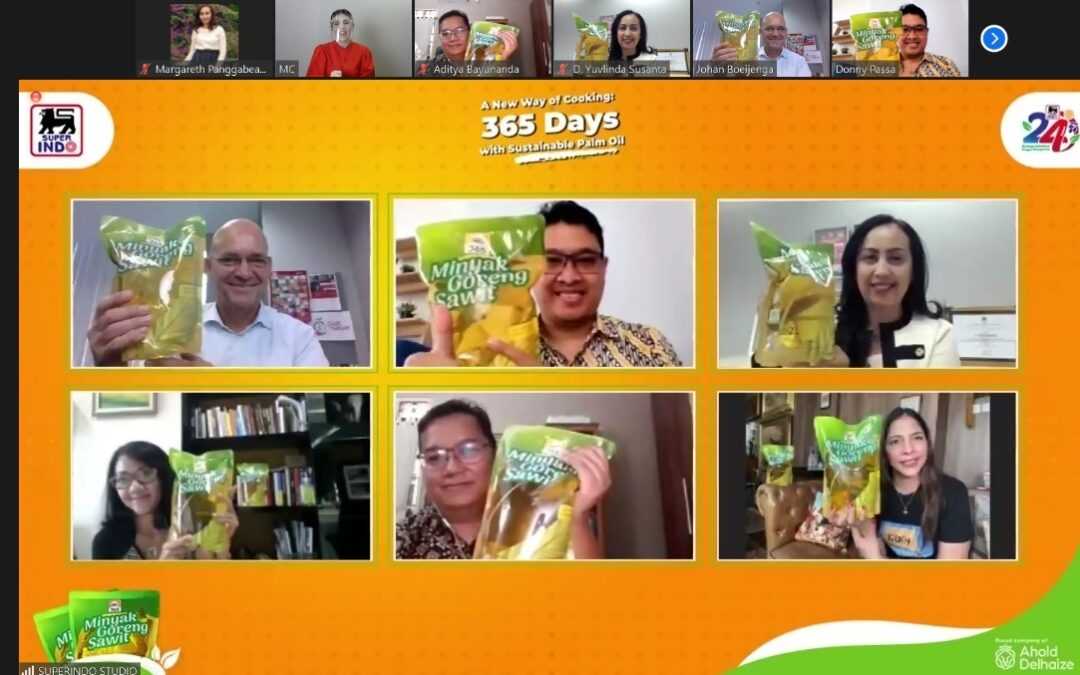WWF challenge on launch day: can you find suatainable palm oil in your supermarket? © WWF Indonesia
Large Indonesian supermarket chain SuperIndo launches new product: certified palm cooking oil
Background
Palm oil – it is used in countless products and in food, e.g. margarine, sweets or ready-to-eat meals, as well as agrofuel. Indonesia has become the world’s largest producer of palm oil, and together with Malaysia, produces over 80 percent of the world supply. In Indonesia alone, palm oil trees grow on more than 12 million hectares of land – an area three times the size of Switzerland.
Slash-and-burn practices and the draining of peat forests to expand palm oil cultivation sites have released large quantities of greenhouse gases, such as carbon dioxide and methane. Creation of new plantations have often also ignited conflicts over land use. An end to the steady growth of palm oil cultivaiton is not in sight. So, what could be the best way to deal with this problem? The key lies in sustainable palm oil production and good framing conditions through ambitious, environmentally and socially responsible policies.

Harvesting palm fruits © WWF Indonesia
What does sustainable production of palm oil look like?
For a sustainable production of palm oil, the most important aspect is to ensure that land used for cultivation has not been converted to the detriment of the environment. Cultivation should only take place on fallow land and land that can and has been used for agriculture, in order to minimize the risk of carbon release (avoiding further deforestation).
The Roundtable on Sustainable Palm Oil (RSPO) is a global initiative that aims to make palm oil cultivation more sustainable through a variety of criteria and requirements to prevent deforestation, slash-and-burn practices, and human rights abuses. Certification criteria contain both environmental and social indicators. These include:
- No clearing of forests for new plantations, especially areas of high conservation value
- Environmentally responsible production
- Respect for the rights of the local population
- Respect for workers’ rights
Offering consumers a green choice
According to a survey that our team in Indonesia conducted with MarkPlus Inc. in 2020, 82% of consumers were willing to switch to sustainable palm oil products. This figure indicates that consumers are well-informed on the importance of choosing sustainable products. In practice, however, sustainable products were not available in markets. Over the past years, our team worked with businesses to introduce sustainable alternatives to supermarket shelves. Finally, a success was achieved in that the large supermarket chain SuperIndo has now introduced certified sustainable cooking oil in their supermarkets across the country.
With its newly certified palm oil, SuperIndo is sending out a signal that it is willing to take over responsibility for their palm oil supply chain

The labeled Minyak Goreng 365 (Cooking Oil 365) has two sustainability certifications – the national ISPO label (Indonesian Sustainable Palm Oil) as well as the international one (RSPO – Roundtable on Sustainable Palm Oil) . © WWF Indonesia
This certification is a manifestation of our commitment to contribute to reducing environmental impact and compliance with legal requirements. This is a greener choice, for the environment as well as being socially responsible.
Johan Boeijenga, President SuperIndo

Launch day © WWF Indonesia
In a joint virtual event with the Indonesian project, the product was officially launched and received broad media attention.
It is clear that certification alone cannot tackle all the challenges connected to the whole palm oil sector. The RSPO certification standard covers more or less minimum requirements to sustainable palm oil cultivation. It needs to be developed further and continuously improved, and this needs to be done with broad stakeholders involvement. With the launch of RSPO-certified palm oil to the Indonesian market, a clear signal was set for the need for sustainable palm oil cultivation. The project team will continue to work with all actors involved in the palm oil supply chain to transform the sector in line with sustainabilty principles, and encourage stakeholders to implement further improvements beyond the current RSPO criteria.
Find out more on media trips that the project team in Indonesia has conducted to showcase best practices of palm oil production here.
SOLUTIONS FOR TOMORROW


